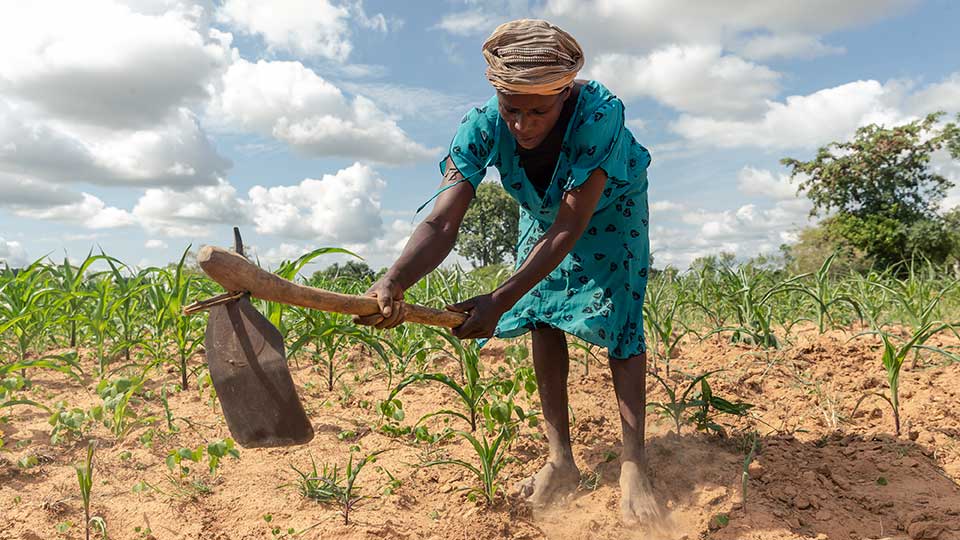
IN over a decade, farm workers have endured gruelling and deplorable working conditions tantamount to modern day slavery.
The wages and living conditions would easily be mistaken for apartheid days of exploitation of the black farm worker.
Precisely, farm workers are facing a gross violation of their rights and reduced to a life of penury.
The beggarly life at most farms is appalling given that the farmers live a more decent life.
The deafening silence by the workers unions is quite disturbing. Who then will speak for the workers? Where is the voice of the voiceless?
What a classic example of a dearth of unionism in agriculture!
Remuneration The National Employment Council (NEC) for agriculture has pegged ZW$8 500, which is about US$35 on the parallel market and US$68 using the official rate, as the monthly salary for the workers.
The NEC for agriculture has proved to be a toothless bulldog which has done little to nothing to protect workers’ rights. The lackadaisical approach by the NEC is shameful for one simple reason; leaving farm workers living a dejected life.
- Chamisa under fire over US$120K donation
- Mavhunga puts DeMbare into Chibuku quarterfinals
- Pension funds bet on Cabora Bassa oilfields
- Councils defy govt fire tender directive
Keep Reading
Farmers are not providing non-resident workers transport and an energy allowance.
The salaries are measly to sustain any family. In many instances, the workers are not paid on time, with some farmers owing up to four months wages.
This has forced some farm workers to resort to stealing to put food on the table.
This paints a bad picture about the backbone of Zimbabwe’s economy — agriculture.
However, there are some farmers giving their employees either monthly groceries or full board meals to cushion the lowly paid workers.
Squalid living conditions, welfare Ever since the land reform programme, farm workers’ needs have suffered as both new and old farmers fought for their own survival.
Where workers used to have houses, these have dilapidated such that when it rains, the roofs leak.
At some farms owned by new farmers, the employees live in wooden cabins, which were set up as temporary structures. When it rains, it literally pours in those cabins.
To make matters worse, there are no ablution facilities to cater for between 10 to 20 workers.
Very few farmers worry about clean water for their workers. Where there were boreholes, they have not been maintained. Workers have to get water from unsafe sources, like dams, rivers and unprotected wells.
Another issue of concern is the high number of school drop outs because the farm workers’ children have to travel long distances to schools and parents cannot afford to pay fees from theirpaltry salaries.
Working conditions Because of the harsh economic conditions, workers have little bargainingpower in wage negotiations. The farmers stipulate how much they can pay the worker on a take it or leave it basis.
Most workers are forced to work because they are desperate.
Workers are in most cases working without protective clothing such as overalls, gumboots, masks and gloves.
This situation is more critical in tobacco farming communities where workers are suffering from chest infections caused by chemicals. No one is acting to address the problem.
When a worker falls sick, employers do not cater for health bills.
In the event of death at the farm, family members are instantly ordered off the premises.
Sadly, workers do not have access to medical aid and funeral cover. The workers unions’ silence over such crucial matters is worrying to say the least.
Working hours, holidays, weekends and leave days have no meaning to farm workers who are on duty 24/7 for 365 days.
Cases have been reported where farmers have been dismissed on flimsy grounds, sometimes without being paid.
Sexual abuse Sexual harassment, exploitation and assault are rife in farming communities. The perpetrators are often male workers and supervisors.
However, in some instances the abuse is being committed by the farmers. Alarmingly, young children face sexual abuse.
But due to fear of victimisation, the cases go unreported. They do not have confidence in the legal system.
Unions used to play a critical role in raising awareness around these issues to protect the women and children.
Low hanging fruit Farm workers constitute an important part of the country’s labour force as they number up to one million. If asked to pay monthly subscriptions of US$1 per person, that can make a difference in unionism.
The workers’ right abuses require redress by unions.
In a world of advanced technology,more can be done to help workers pay subscriptions and e-membership cards.
Complaints can also be lodged online.
- Gwabanayi is a practising journalist and a farmer in his own right. — 0772 865 703 or [email protected]











